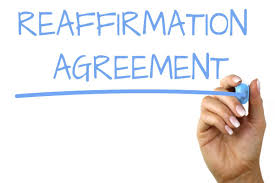Defective Reaffirmation Agreements
A Reaffirmation Agreement will be considered defective and will be stricken from the docket if:
-
It is not filed on Official Form B2400A or B2400A/B ALT, or if -
The debtor and/or creditor fails to sign any of the required parts of the agreement. -
A Reaffirmation Agreement will be considered defective if Part E is not completed. Failure to submit a completed Part E within the deficiency period (14 days) will result in the agreement being stricken from the docket and unenforceable.

